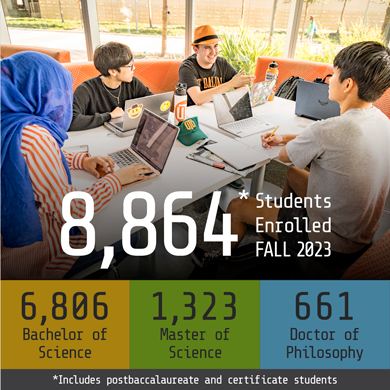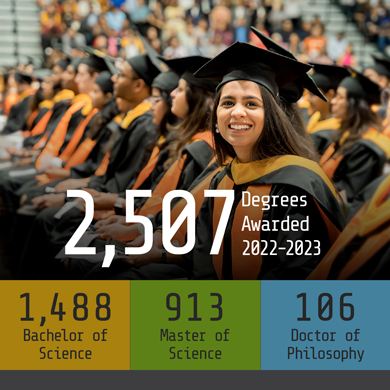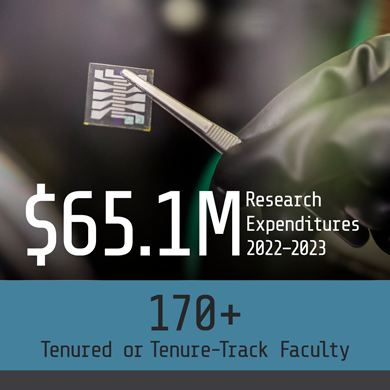
Cultivating Consciousness
Monthly Major Religious and Cultural Observances
This is an effort to promote inclusive excellence and grow in respect, acceptance and appreciation together. We realize we may miss celebrations important to us; please help us cultivate consciousness about cultural, religious or heritage dates that are important to you.
April

is a time to focus on environmental consciousness and sustainable innovation.
Apr. 7
World Health Day
Marks the anniversary of the founding of the World Health Organization (WHO) in 1948, and is celebrated annually, drawing attention each year to a specific health topic of concern to people all over the world.
Apr. 12
International Day of Human Space Flight
The date of the first human space flight (carried out by Soviet citizen Yuri Gagarin), which stands as the beginning of the space era for mankind, is celebrated each year at the international level, reaffirming the important contribution of space science and technology in achieving sustainable development goals and increasing the well-being of states and peoples.
Apr. 12
National Day of Silence
A student-led day of silence to recognize and protest the discrimination and harassment of people who are lesbian, gay, bisexual, transgender, queer or intersex and their allies.
Apr. 22
Earth Day
An annual event to demonstrate support for environmental protection, which was first held on April 22, 1970. The global event often include a wide range of events, inclusive of one billion people across 193 countries. 2024’s official theme is “Planet vs. Plastics.”
Apr. 22 – Apr. 30
Passover
In Judaism, commemorates the liberation of the Hebrew people from slavery in Egypt and the “passing over” of their firstborn children from destruction.
March

marks the contributions of women throughout American history.
Mar. 8
International Women’s Day
A global day celebrating the social, economic, cultural and political achievements of women. The day also marks a call to action for accelerating women’s equality.
Mar. 10 – Apr. 8
Ramadan
Annual observance for Muslims worldwide during the ninth month of the Islamic calendar marked by abstaining from eating and drinking from dawn until dusk and prayer and reflection.
Mar. 14
Pi ℼ Day
Math enthusiasts around the world celebrate the symbol used in mathematics to represent a constant – the ratio of the circumference of a circle to its diameter – which is approximately 3.14159.
Mar. 20
International Day of Happiness
Recognizing the relevance of happiness and well-being as universal goals and aspirations in the lives of human beings around the world.
Mar. 21
International Day of Nowruz (Persian or Iranian New Year)
Rooted in Zoroastrianism and celebrated for more than 3,000 years and is now celebrated by more than 300 million people around the world, it marks the vernal equinox and first day of spring. Its spelling and pronunciations vary by country.
Mar. 24-30
Passion or Holy Week
Starting with Palm Sunday, which marks the day Jesus rode into Jerusalem to willingly start his journey to crucifixion, many Western Christians celebrate the end of Lent, Spy Wednesday, Maundy Thursday, Good Friday and Holy Saturday. Eastern Orthodox Christians celebrate April 28 – May 4.
Mar. 25
Holi (Festival of Colors)
The Hindu holiday marks the beginning of spring with brightly colored powders and rituals in front of a bonfire, honoring the love of Goddess Radha and Lord Krishna.
Mar. 31
Easter
A most sacred Christian observance that commemorates Jesus rising from the dead after being crucified. Western Christians celebrate on March 31 (according to the Gregorian calendar) and Eastern Orthodox Christians celebrate on May 5.
February

recognizes achievements and contributions of generations of Black people in America.
Feb. 1
World Hijab Day
Celebrates the millions of Muslim women who choose to wear the hijab and live a life of religious faith.
Feb. 10 – Feb. 24
Lunar New Year
Celebration by more than 1.5 billion people around the world based on the lunisolar calendar. Each year corresponds with an animal from the Chinese zodiac, which consists of 12 different animals and cycles through over 12 years. 2024 is the Year of the Dragon.
Feb. 14
Ash Wednesday
Start of a 40-day period before Easter Sunday of fasting, prayer and reflection celebrated by many Christians.
Feb. 18 – Feb. 24
National Engineers Week
Started by the National Society of Professional Engineers, the week celebrates engineers’ contributions to society.
Feb. 22
Introduce a Girl to Engineering Day
Volunteers, educators and professionals role model to girls how engineers change our world.
January

Jan. 1
New Year
Marks the start of a new year according to the Gregorian calendar and is a federal holiday in the U.S.
Jan. 16
Martin Luther King Jr. Day
Commemorates the life and legacy of Dr. King, a slain leader of the American civil rights movement. The occasion is often marked by volunteering to serve others.
Jan. 27
International Day of Commemoration in Memory of Victims of the Holocaust
Set on day anniversary of the liberation of Auschwitz-Birkenau, the most notorious of the camps where Nazis mass murdered Jewish people, the day reaffirms UNESCO’s commitment to counter antisemitism, racism and other forms of intolerance.
December

is a time for people around the world to stand up for human rights and the dignity of all individuals. First established in the U.S. as a day, it become a monthlong observance when the United Nations wrote the Universal Declaration of Human Rights.
Dec. 3
International Day of Persons with Disabilities
Established by the United Nations as part of commitment to realize that the rights of persons with disabilities are a matter of justice and investment in a common future.
Dec. 7‐15
Hanukkah (Chanukah)
Festival of Lights that commemorates the victory of Jewish freedom fighters over Greek occupiers in 2nd century BCE and the rededication of Jerusalem’s Holy Temple.
Dec. 16‐24
Las Posadas
Celebrated in Latin America and by Hispanics in the United States the name means inn or lodging in reference to the story in the Bible of the search for a place to stay where Jesus Christ, the central figure of Christianity, could be born.
Dec. 21‐Jan. 1
Yule (Winter Solstice)
Celebration by pagan and wiccan faiths that marks the shortest day of the year and the time when the days begin to lengthen again.
Dec. 21
Yaldā (Winter Solstice)
Festival celebrated by Zoroastrians and other Persian and Central Asian communities on the longest and darkest night of the year.
Dec. 25
Christmas
Religious celebration of the birth of Jesus Christ as recounted in the New Testament of the Bible that has also evolved into a celebration by Christians and non‐Christians around the world.
Dec. 26‐Jan. 1
Kwanzaa
Created based on African harvest festival traditions, the festival celebrates African American culture and heritage.
November

celebrates the contributions of the original people who inhabited the land that became the United States of America.
Nov. 1‐2
All Saints’ Day and
All Souls Day
Members of the Roman Catholic Church as well as some Protestant churches honor the saints of the church who have attained heaven. The day is followed by All Souls Day, which honors those who died within the faith.
Nov. 1‐Nov. 2
Día de los Muertos
Translated in English as Day of the Dead, the celebration that originated in Mexico commemorates death and life by providing offerings for deceased children and adults.
Nov. 11
Veterans Day
Federal holiday in the United States that honors military veterans of the United States Armed Forces.
Nov. 12
Diwali
Hindus, Jains and Sikhs celebrate the triumph of good over evil and light over darkness. Many Hindus invite Lakshmi, the Goddess of Wealth, into their homes to bring prosperity.
Nov. 16
International Day for Tolerance
Established by the United Nations Educational, Scientific and Cultural Organization (UNESCO). UNESCO’s principles of tolerance reads “Tolerance is respect, acceptance and appreciation of the rich diversity of our world’s cultures, our forms of expression and ways of being human.”
Nov. 20
Transgender Day of Remembrance
Honors memory of transgender people who were murdered because of hate or prejudice.
October

the celebration of Hispanic heritage continues through October 15 and a collaboration between government and industry to raise awareness about digital security and annual observance of LGBTQ+ history.
Oct. 9
Columbus Day
Commemoration of the day that Christopher Columbus landed in the Americas in 1492.
Oct. 9
Indigenous Peoples’ Day
Commemoration of Native American history and culture.
Oct. 11
National Coming Out Day
Day of awareness to support anyone living life openly as a member of the LGBTQ+ community.
Oct. 17
Birth of Baháʼu’lláh
Celebration of the birth of Mirza Husayn-Ali, who is known by his title of Baháʼu’lláh, a founder of the Bahá’i faith, as well as of the forerunner of His Revelation, the Bab.
Oct. 24
Vijayadashami or Dussehra
The end of Shardiya Navratri, a 10-day worship of Maa Durga, a major goddess, and her nine avatars.
September

celebrates contributions of people whose ancestors came to the U.S. from Spain, Mexico, the Caribbean and Central and South America.
Sept. 4
Labor Day
National holiday in honor of workers that resulted from organized movements that led to safe working conditions, paid time off and sick leave.
Sept. 6 – Sept. 7
Krishna Janmashtami
Annual festival of the manifestation of the Krishna, the Hindu god of compassion, protection and love, with celebrations that include fasts and kirtans.
Sept. 11
Patriot Day
Observance in remembrance of those killed in the four coordinated terrorist attacks by the al-Qaeda militant organization against the United States on Sept. 11, 2001.
Sept. 15 – Sept. 17
Rosh Hashanah
Two-day festival that marks the creation of the humanity and start of the Jewish new year (occurs in the seventh month of the Hebrew calendar) and begins the Days of Awe, a 10-day period of introspection and repentance that culminates in Yom Kippur (see Sept. 25).
Sept. 15 – October 15
Hispanic Heritage Month
Celebrates contributions of people whose ancestors came to the U.S. from Spain, Mexico, the Caribbean and Central and South America. It begins on Sept. 15 because it marks the independence of Costa Rica, El Salvador, Guatemala, Honduras and Nicaragua, with Mexico and Chile on Sept. 16 and Sept. 18, respectively.
Sept. 17
Day of Social Justice
Marks the birth anniversary of social reformer E.V. Ramasamy (Periyar) who launched the Self Respect Movement in India for equality of men and women and abolition of caste.
Sept. 19
Ganesh Chaturthi
Annual festival of the manifestation of Ganesh, the Hindu god of wisdom, prosperity and good fortune, with celebrations that include installation of clay idols of Ganesha in homes and publicly on pandals.
Sept. 21
International Day of Peace (World Peace Day)
United Nations declaration of a day devoted to strengthening the ideals of peace with a 24-hour observance of non-violence and cease-fire.
Sept. 25
Yom Kippur (Day of Atonement)
A holiest day in Judaism and Samaritanism in which followers are encouraged to make amends and ask forgiveness for sin committed during the past year.
Sept. 26 – Sept. 27
Mawlid al-Nabi
Annual observation of the day when the Islamic prophet Muhammad was born. It is celebrated with religious gatherings such as festivals, prayer services and recitations of poetry and litanies. Most denominations of Islam approve of this holiday while a few do not.
Sept. 29
Mid-Autumn Festival (Moon Festival or Lantern Festival)
Celebration of the harvest moon by people descended from southeast and northeast Asian countries that features reunions, lanterns, exchange of mooncakes and other festivities.
August

reminds us to treat others with kindness, empathy and respect.
Aug. 9
International Day of the World’s Indigenous Peoples
Recognition started by the United Nations to protect the right of indigenous peoples to make their own decisions, celebrate their culture and recognize their contributions to issues such as environmental protection.
Aug. 13
International Lefthanders Day
Encourages right-handed people to try things with their left hand to raise awareness of the everyday struggles of people dominant with their left hand.
Aug. 15
Feast of the Assumption of the Blessed Virgin Mary
Occasion of the Virgin Mary’s bodily ascent to heaven upon death instead of going through the normal process of physical decay; the day is recognized by Catholics.
Aug. 19
World Humanitarian Day
Shines a light on the thousands of aid workers who sacrifice their own lives to deliver urgent health care, shelter, food, protection, water and more in humanitarian crises.
Aug. 26
Women’s Equality Day
Celebrated in the United States on the anniversary of the ratification of the 19th Amendment, which gave women the right to vote. The day marks the progress women have won through the years, and of the work that remains to be done.
July

commemorates the passing of the Americans with Disabilities Act with a goal of changing the stigma that people with disabilities are limited.
July 1
Jashn-e-Tirgan
Ancient festival that includes food, poetry recitation and water games celebrated by some Iranians and Zoroastrians in honor of water and rainfall which boost harvests and avoid drought.
July 4
Independence Day
A federal holiday held in the United States on the anniversary of the adoption of the Declaration of Independence that officially declared American’s independence from the British Empire.
July 18
Nelson Mandela International Day
Recognized by the United Nations, the day celebrates the former South African president’s contributions to the culture of peace and freedom and is a call to action for people to make a positive impact in their communities.
July 19
Islamic New Year (Al-Hijra or Hijri)
Held on the first day of Muharram, the first month in the Islamic calendar, which is based on when the Prophet Muhammad moved from Mecca to the city now known as Medina to flee persecution.
June

focuses on the culture, achievements and activism of people who love and live beyond heteronormativity. Watch for UT Dallas’ float at the Dallas Pride Parade, June 4, 2023, at Fair Park.
June 14
Flag Day
Honors the adoption of the national flag of the United States of America with parades, essay contests, ceremonies, picnics and other events to preserve the traditions, history and pride of the American flag.
June 19
Juneteenth
Federal holiday that recognizes June 19, 1865, as the day enslaved Africans and African Americans in Texas learned that they had been freed more than two years before by the Emancipation Proclamation edict issued by U.S. President Abraham Lincoln on January 1, 1863.
June 21
Litha
Pagan and Wiccan celebration of the power of the sun on the summer solstice — the longest day of the year.
June 26 – July 1
The Hajj (or Hadj or Haj)
A pillar of Islam required by all Muslims at least once. During the pilgrimage and upon arrival at Mecca, Saudi Arabia, Muslims perform a series of consecutive rituals to wipe away sins and unify followers of diverse backgrounds.
June 28
International LGBT+ Pride Day
Commemorates the Stonewall Riots that occurred on June 28, 1969. The riots are credited with a shift in activism for the rights and dignity of people who are lesbian, gay, bisexual or transgender.
June 28 – June 29
Eid al-Adha (Feast of Sacrifice)
Second of two main holidays celebrated by Islam marked by prayer, gift giving and sharing of meat with family, friends and the poor.
May

celebrates current and generations of Asians and Pacific Islanders in the United States and recognizes American Jews’ achievements and contributions to the U.S.
May 5
Cinco de Mayo
Commemoration of Mexican-American culture that falls on May 5, the date of Mexico’s victory over France during the
Franco-Mexican War.
May 17
International Day Against Homophobia, Transphobia and Biphobia (IDAHOTB)
A worldwide celebration of sexual and gender diversities observed on the date that the World Health Assembly of the World Health Organization no longer listed homosexuality as a diagnosis.
May 30
Memorial Day
Honors those who died while serving in the U.S. military.







